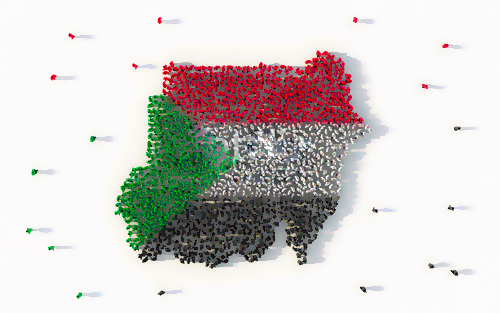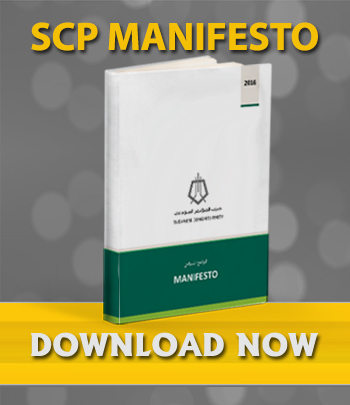SUDAN GEOGRAPHY, HISTORY & POPULATION
 Sudan is a multi-ethnic, multi-religious, multi-cultural and diverse country with more than 300 tribes that speak over a hundred dialects and languages. It has an area of about 1,865,813 km2 and a population of almost 34 million and has a population overlap with seven neighboring countries over borders of more than (7,000 km) in length.
Sudan is a multi-ethnic, multi-religious, multi-cultural and diverse country with more than 300 tribes that speak over a hundred dialects and languages. It has an area of about 1,865,813 km2 and a population of almost 34 million and has a population overlap with seven neighboring countries over borders of more than (7,000 km) in length.
This broad area and this interaction of the existing population with these neighboring countries in addition to inward and outward migration has produced a very complex social community. Throughout our history we have never known the concept of unity. Whether it be the unity of our history, of religion, tradition or culture, On the contrary, we are more familiar with the notion of tribalism, ethnicity, individuality and sectarianism. We are therefore many societies rather than one, with different and diverse cultures. The Sudanese did not know the concept of the modern state until the Ottoman-Egyptian occupation in 1821, which began to integrate these groups with their different cultural and religious and social norms that were historically separate, forcibly, under the umbrella of the modern state, and worked to maintain power and authority centrally in collaboration with some local elites that has led to the creation of the terrible situation that has dominated the history of our country over the past two centuries.
Nevertheless, Sudan has a history of civilized coexistence over more than five thousand years between many states, and it has a spirit of tolerance that still expresses itself strongly even in times of conflict and war. Therefore, our acceptance and open mindedness when dealing with this diversity is a source of strength and a means to evolve. Certainly these different cultural groups are also national groups that cannot be categorized by their relative majority or minority and any ideological, ethnic or cultural affiliation they have that transcends the borders of the homeland must take second place to the primacy of their affiliation to the homeland of Sudan, accordingly, their concept of the Sudanese national state can exist without cutting any wider historical affiliations that could undermine the psychological balance of the individual or the community whilst at the same time avoiding negativity that could lead to the fragmentation of national unity.
The equal opportunities at the social, economic and political levels, and the acceptance of others at the level of thought and practice, are necessary as the basic qualification for individual's ability to work, based only on his talent and his experience, not on any other ethnic, regional, ideological or political basis.
With this understanding based on the principle of equality, and taking full account of the policies that lead to national integration, the state, its laws, and its political, economic, social and educational institutions must be independent and neutral towards the objectives that individuals or groups seek to achieve. Therefore, the state is the judge and the impartial arbitrator, the mediator and neutral organizer, where that neutrality remains separated from belief, race, culture or the entity.
The Sudanese Congress Party, presents its foundations and program to develop the current situation and move it towards the Nation we want, it has formulated all its programs from a rational perspective with clear and logical criteria and a firm understanding of our history to achieve our mission.


